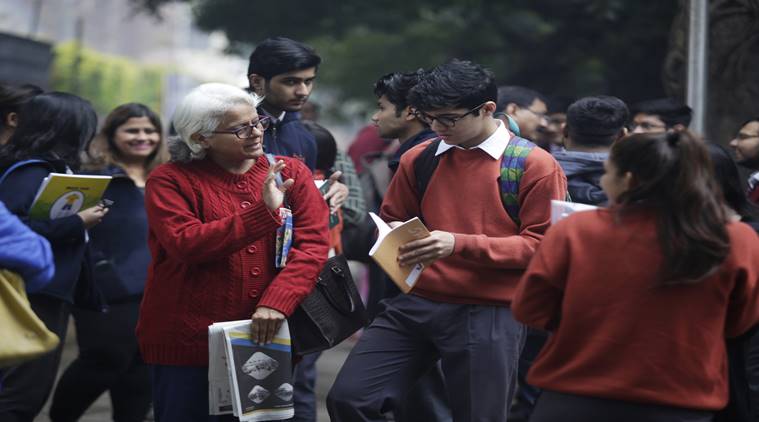How to prepare for Board exams 2020
To ward off examination blues, here are 10 tips to make a student exam-ready without falling into anxiety.
 Board exams to begin from February (Express Photo By Praveen Khanna/ Representational image)
Board exams to begin from February (Express Photo By Praveen Khanna/ Representational image)
— Alka Kapur
The CBSE and CISCE have announced their class 10 and 12 board exam date sheets, prompting preparation anxiety among students. To give the best performance in Board exams, students need to be in their best state of mind while preparing too, instead of spending precious revision hours in sleepless nights.
To ward off examination blues, here are 10 tips to make a student exam-ready.
Plan an early revision: The class 10 and class 12 syllabus is completed long before the exams. Therefore, a student should start rigorous revision. Whether it is making oneself friendly with theorems and numerical problems of Mathematics, or understanding chemical formulas in Chemistry, revolutions and personalities in History, a proper revision is the best antidote. So, instead of exploring chapters which are not touched yet, one should utilise the remaining time in getting better insights on chapters that s/he has already gone through. The revision will help clear many prevailing doubts and confusions.
In video| Board exams 2019: How to focus on studies and avoid distractions?
Plan a productive timetable: For the exam preparation, students should prepare an effective timetable. This will enable them to reap maximum benefits within a limited time. Those who are able to optimise their time today are the champions of tomorrow. While making the timetable, extra hours should be given to the topics which seem hard and complicated, but simpler topics should also be studied simultaneously as they are going to play a vital role in scoring well in the examination. Also, one should stick to the timetable one has chosen very rigorously. The proper approach will help the student in revising the entire course in a shorter duration.
Incorporate all the subjects in daily studies: It becomes quite monotonous for students preparing a single subject for long hours. Instead, give each subject a fair amount of time. All subjects are important because they are going to make an impact on one’s score card equally. For all-round performance, one has to devote extra time to subjects where s/he lacks, but other subjects should not be ignored and be revised regularly and sincerely.
Prepare notes: It is very beneficial for students to prepare notes while studying. These will help them in the final phase of the study; the last-minute browsing before exam day. Further, developing acronyms for an easy recall is important to memorise various lengthy formulas and equations.
Read| Here’s how to prepare for pre-board exams 2020
Involve your friends and talk to them: Although it should be done with caution, an honest and sincere group study is always recommended to understand a subject thoroughly and practically. A casual gathering might end up interrupting one’s studies.
Practice previous years’ papers: For better clarity and command over a subject, a student should also invest some time in solving question papers of the last few years. This practice will also help the student in attempting maximum numbers of questions in the given time slot.
Read| CBSE Class 10th, 12th exam 2020: Check marking scheme, passing marks
Have a balanced meal: One should consume a balanced meal every day before and during the exam. The meal must contain the five necessary nutrients — carbohydrates, protein, fats, vitamins and minerals for better immunity and active living.
Schedule regular breaks: Continuously studying without any break can affect the body as well as the mind. Sitting for a long time can affect the neck, shoulder and back (spinal cord), while consecutively focussing on study material can strain the eyes. So, a 10-minute break every hour of sitting is good to avoid monotony as well as stiffness.
Sleep well: Around 6 to 7 hours of sound sleep is the demand for effective functioning of the body and brain. So, try to sleep in a calm and comfortable environment.
Stay positive: It is necessary to maintain a positive state of mind. Reach the examination centre 10-15 minutes early and fill your mind with positive thoughts to boost your confidence. A positive mindset is the beginning of a good start and a great end.
— The author is Principal, Modern Public School, Shalimar Bagh.
- 01
- 02
- 03
- 04
- 05































